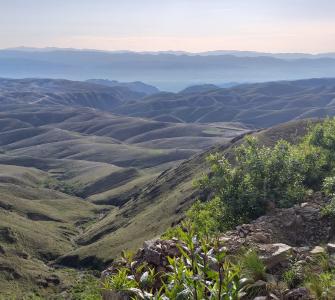The Plurinational State of Bolivia and the Food and Agriculture Organization of the United Nations (FAO) are working together on a proposal to the Green Climate Fund (GCF) to improve climate change resilience for communities and small farmers in the Bolivian Valleys. The project focuses on capacity building and development of best agricultural practices to increase productivity and sustainability of agroecosystems, in order to adapt to the increasing variability of temperatures and rainfall.
CSF-Bolivia supported the proposal with the development of five technical documents that together comprise the Technical Feasibility Analysis and serve as key inputs for the final proposal for the GCF. These documents are: i) Project intervention proposal, ii) Environmental and social management plan, iii) Analysis and financial evaluation and project budget, iv) Institutional Capacity Analysis, and v) Financial, economic, and environmental analysis and evaluation.
Photo: Los Valles de Bolivia by Dennise Quiroga
In 2014 the Development Bank of Latin American (CAF) ranked Bolivia as one of the countries most vulnerable to climate change due to the risk of exposure to extreme weather events and a low capacity for adaptation. The Valleys region of Bolivia is considered the most vulnerable area of the country due to high rates of poverty. In this rural part of the country, more than half the population depends on natural resources and favorable weather conditions for their survival.

